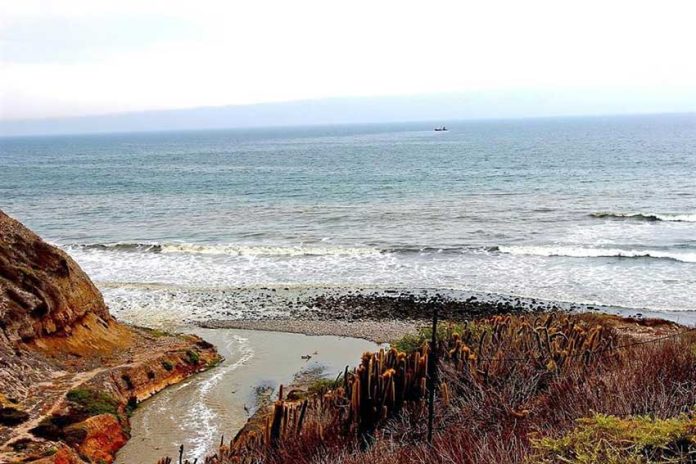A binational environmental group is preparing a criminal complaint against the Baja California state government for negligence in the discharge of sewage from a Tijuana treatment plant that pollutes waters off the coasts of both Mexico and the United States.
Paloma Aguirre, coastal and marine director for Wildcoast, told the newspaper Reforma that the complaint will be made collectively in the names of Baja California residents and that separate legal action will also be initiated across the border.
Aguirre charged that the Tijuana wastewater treatment plant, known as San Antonio de los Buenos, or Punta Bandera, is dumping 1,750 liters of untreated sewage into the Pacific Ocean per second.
She said that in addition to causing environmental damage, the pollution also poses a risk to human health.
A recent study by the organization Proyecto Fronterizo de Educación Ambiental (Border Project for Environmental Education) found that the wastewater discharged by the Punta Bandera plant exceeds permitted fecal coliform levels by as much as 12,000%, or 120 times the legal level.
In March, the Californian cities of Chula Vista, Imperial Beach and San Diego jointly filed their own lawsuit against the United States section of the International Boundary and Water Commission (IBWC) and its contractor, Veolia Water North America, charging that they repeatedly failed to take measures to address “devastating pollution discharges” in violation of U.S. law.
A San Diego border patrol agents’ union has also said that it will file a complaint over Tijuana’s pollution.
More than 50 border agents fell ill last year due to exposure to contaminants while working in the vicinity of the border.
For its part, the Tijuana office of the state Public Services Commission (Cespt), which operates the treatment plant, said in a statement that it is lobbying the federal government and organizations including the United States Environmental Protection Agency and the IBWC to obtain funding that would allow it to increase capacity.
An investment of around 1.5 billion pesos (US$79.7 million) is needed to upgrade the plant and four pumping stations, Cespt director Germán Lizola Márquez said.
However, he added, a study must first determine exactly what needs to be done, adding that the first stage of the 10-million-peso analysis is slated to be completed in October.
Sewage from the Punta Bandera plant has been contaminating ocean waters and beaches on both sides of the border for years.
Pollution in the Tijuana river, including viral pathogens, toxic waste and chemicals, also runs into the ocean, further angering politicians and residents of southern California.
Imperial Beach Mayor and Wild Coast executive director Serge Dedina has been particularly critical of Mexican authorities for failing to stem the tide of sewage and other contaminants flowing across the border.
Source: Reforma (sp)
